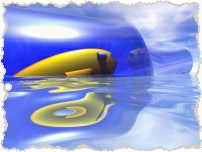Written in Black and Wight: E
Created | Updated Nov 12, 2017

Welcome to the latest emotional rollercoaster entry in the quiz series dedicated to the Isle of Wight's
dialect, preserved in publications including A Dictionary of Isle of Wight Dialect by WH Long (1886)
and Isle of Wight Dialect by Jack Lavers (1988)1.
E
This week is words beginning with E. It is widely accepted that 'E' is the most common letter
used in English – except of course on the Isle of Wight. You only need get as far as the very first entry in the
Isle of Wight dictionary: A – Aaaaardvaaark before you get a sneaky suspicion that there's a new vowel in
town.
In fact, far from being the most common letter, there are actually few examples of the Isle of Wight dialect
that begin with an 'E' – far fewer than words beginning with 'Q' or 'Z'2. Long only lists
eight and Lavers a further seven. So this has given me a bit of a dilemma, what do I do with this week's quiz?
The way I see it, I have the following options:
Use all these words.
Sadly among the 15 words are phrases such as 'Ee' meaning 'He' (and sometimes used as 'You'), 'Ees' meaning
'Yes' and 'Eath' meaning 'Earth'. Despite being solid, reliable, salt-of-the-Eath sort of words, to be honest
they're a bit dull.Have a shorter quiz than normal.
I could just use the interesting words beginning with E, and leave it at that. It wouldn't feel very satisfying,
though.Combine E with F, the next letter along
F is another letter that few words begin with, as it was often substituted by 'V'.Bolster E with examples of other letters
As well as using letters beginning with 'E' I could also take a nostalgic look back at the good old days of when
the quiz was on letters such as 'A', 'B' and 'C' and include some of the overlooked words to bolster
numbers.
After much internal debate I settled on option four.
So without further ado, here is the quiz!

Eace
- East, but can also mean 'Sunrise' and 'morning'.
- A worm.
- Fleece, clothing made from fur or animal hair.
Emmet
- Helmet worn by labourers in brick works or limestone quarries.
- An ant.
- Someone who is special and/or unique.
Ellum
- A handful of straw used for thatching.
- Properly meaning deer skin, but also used to refer to parchment that is used to record legal
documents. - A woodsman or lumberjack, particularly presumably those who sleep all night and work all day.
Empt
- To foresee events in the future.
- Course cloth used to make rope and fishing nets.
- To empty.
Extry
- More than normal.
- To anger or annoy.
- Except and exclude. So 'Dogs extry' means 'no dogs', 'open extry Zundays' means 'not open on
Sundays'. - Coastguard, armed Customs and Excise men charged with arresting/killing Island fishermen who
supplement their meagre incomes with a spot of harmless smuggling.
Afeard
- To be frightened.
- To avert and avoid or to have an aversion.
- To be greedy and/or eager.
Anewse
- Something very similar.
- Something that is annoying, a nuisance.
- Something that is amusing.
Astrout
- Water-filled bucket used to keep fish in on fishing boats.
- A granary or storehouse that is resting on corner stones above ground level to prevent rats from entering
is 'astrout'. - Something stretched out either stiff or frozen.
Athert
- Suffering unexpected pain or injury, especially by a child; that hurt.
- Across.
- An earwig.
Azew
- Without milk and dry.
- Lop-sided, not straight or level.
- Bright blue, the blue of the sky (not the sea).
Backside
- Bottom or buttocks.
- Outdoor privy, also public convenience.
- Farmyard behind the house.
Batter
- To have an insect fly into or brush against your face.
- To spend a lot of effort digging to little reward.
- Pike or poleaxe weapon that looked suspiciously like an agricultural billhook on a longer staff than normal
carried by members of the Isle of Wight's militia.
Bee Butt
- Meaning 'This is my daughter', if you were the proud father of a girl called 'Lulu' you would introduce
her to your friends with the words, 'Bee butt a' Lulu, she's my baby'. - A beehive.
- A bee or wasp etc stinger.
Belve
- To bellow like a bull.
- Campanology; bell-ringing, either church bells or a ship's bell.
- To dig by the seashore, also to dive at sea for oysters and other seashells.
Caulkhead
- Someone born on the Isle of Wight.
- The bung used to seal a barrel.
- A chalk cliff or promontory.
Click on the picture for the answers!


Placenames, Legends, Books and Authors by Edward Turner (1900) and The English Dialect
Dictionary ed. Joseph Wright (1906).2Although there are no
examples of Isle of Wight dialect that I have found so far that begin with 'X'.
